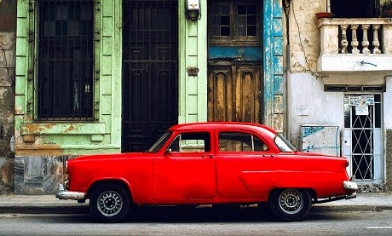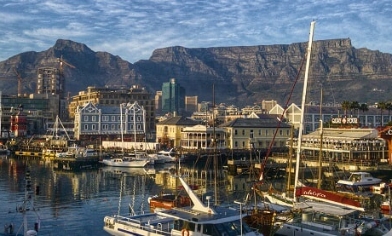Medical care for Brits in Italy
If you're a UK citizen, you can apply for a Global Health Insurance Card (Ghic) that will give you access to emergency or necessary state healthcare in Italy and other EU countries for free or at a lower cost. If you have the previous Ehic card and it's still in date, you can use it until it expires.
Ehic and Ghic alone won't cover everything. For instance, repatriation and airlift rescues are exempt if they're needed. Before you travel, it’s important to buy travel insurance that includes good medical cover in case of emergencies while you’re away. This can protect you from having to personally pay certain costs and any associated expenses. Make sure you’ve got the most comprehensive protection you can.
State healthcare is comparable to that of the UK, however many Italians choose to get private healthcare to avoid waiting times. The emergency number for ambulances in Italy is 118.
Travel risks in Italy
Italy is considered a safe place to travel where the risk of being a victim of crime is low. However, it’s important to be vigilant against crime as you would when going anywhere new. In large cities like Rome and Naples, thieves and pickpockets can operate, especially in crowded and touristy areas.
There is simple advice to follow when visiting these places, such as keeping wallets in your front pocket, wearing backpacks on your front, being wary of people approaching you quickly, not leaving valuables out on café tables and keeping your bag on your lap when sitting down. Read our guide on how to stay safe on holiday.
If you’re asking yourself “do I need travel insurance for Italy?” you should keep these risks in mind. Having holiday insurance for Italy or any overseas travel can give you peace of mind and protection in the event something unexpected happens.
Italy’s coast is famous throughout Europe and many people visit for the sole purpose of getting some sunshine. Make sure you can keep your valuables safe at the beach and are aware of safety practices when taking a dip in the sea.
The country occasionally suffers from natural disasters that it’s wise to be aware of. Earthquakes are rare but can be devastating, and forest fires can break out in the summer. There are strict laws about the disposal of cigarette ends and other litter in certain areas prone to forest fires, so always try to be aware of these.
Italy’s mountains are also some of Europe’s most popular ski resorts. If you are hitting the slopes, make sure you’ve got the appropriate cover, like ski cover, before going away. Always check the avalanche risk of where you’re staying.
Getting around
One of the most popular ways for Brits to get around when they travel in Italy is renting a car. Remember that you will need to make sure you have a valid UK driving licence, insurance and vehicle documents. Driving is generally safe but it is important to take extra care when on winding mountain roads.
Some cities won’t allow hire cars into the centre and will have signs that read “ZTL” to inform you. Passes can be obtained from hire companies. You can be fined for not obeying. Milan also has a congestion charge which it’s important to be aware of.
When leaving your car, always make sure valuables are locked away and out of sight and that the vehicle is secure. If you're leaving valuables in your car, check your travel insurance policy for any restrictions.
Getting around Italy by train is relatively inexpensive and offers a great way of seeing some of the country’s most spectacular scenery. All tickets need to be ‘endorsed’ (stamped) by a machine after being purchased. The machines that endorse tickets are easy to find. Failure to present a stamped ticket can result in large fines.
Inner-city public transport is reliable, with most major cities offering bus and metro networks. Tickets need to be validated on board in a similar way to train tickets. Invalid tickets risk causing fines.
Uber operates in Rome and Milan, and licensed taxis are common in most cities and towns. Always use taxis that have a sign on top and take precautions to be sure that they are formally licensed.
Cycling is very popular in Italy but before you rent a bike, make sure that you’re covered to cycle on your travel insurance and whether there are any exclusions (for instance about wearing helmets and cycling above certain altitudes).
Entry requirements
With the UK's departure from the EU, the rules on entry requirements to Italy could change. Check the latest on anything you'll need to do or take in addition to your passport well in advance using the Foreign, Commonwealth and Development Office (FCDO) travel advice for Italy.
Travel insurance for activities in Italy
As well as incredible food, history and culture, Italy is also a popular area for adventure sports such as mountaineering, rafting, sailing, mountain biking and a lot more. But before signing up for any risky activities, make sure that your insurance covers it. If you plan on going on a holiday that involves activities like this, you might want to get an extra level of cover that allows you to do more.
Specialist add-ons for extreme sports, like ski cover, are available from most insurers.
Is Italy safe to travel to?
Italy is generally safe to visit but, as with travel anywhere, there are always risks you should be aware of and try to protect yourself against when you go. Check the ‘Travel risks in Italy’ section above. Travel insurance may help protect you against some of them.
Of course, the coronavirus pandemic has made many of us much more aware of the need to check destinations are safe before we go. Your first port of call should always be the official FCDO travel advice.
It gives a general update on any alerts, warnings, restrictions, entry requirements and other guidelines for the country. It also has more detailed sections on health in Italy, safety and security risks in Italy, the chance of terrorist activity in Italy, natural disasters in Italy and so on.
Don’t travel if the FCDO or local authorities in Italy advise against it or you’re likely to invalidate any travel insurance policy you have.
Do I need travel insurance for Italy?
If you’re visiting Italy, it’s important to have travel insurance in place for all kinds of reasons.
It can make sure you’re covered for emergency medical expenses if you fall ill or are injured while you’re away, and even transport home to the UK (repatriation) if you need it. With good-quality medical cover you shouldn’t have to pay the often high costs of these services yourself.
Travel insurance can also protect you against cancellation of your trip or delay and other types of disruption to your travel plans. It will also reimburse you for replacing lost, damaged or stolen belongings like luggage and passports.
It’s also important to check the details of any policy before you buy to make sure everything you need is covered. For instance, cruises, activities such as skiing and some of the gadgets you take aren’t usually covered. You may need to buy additional cruise cover, winter sports travel insurance or cover for your gadgets on holiday.




























